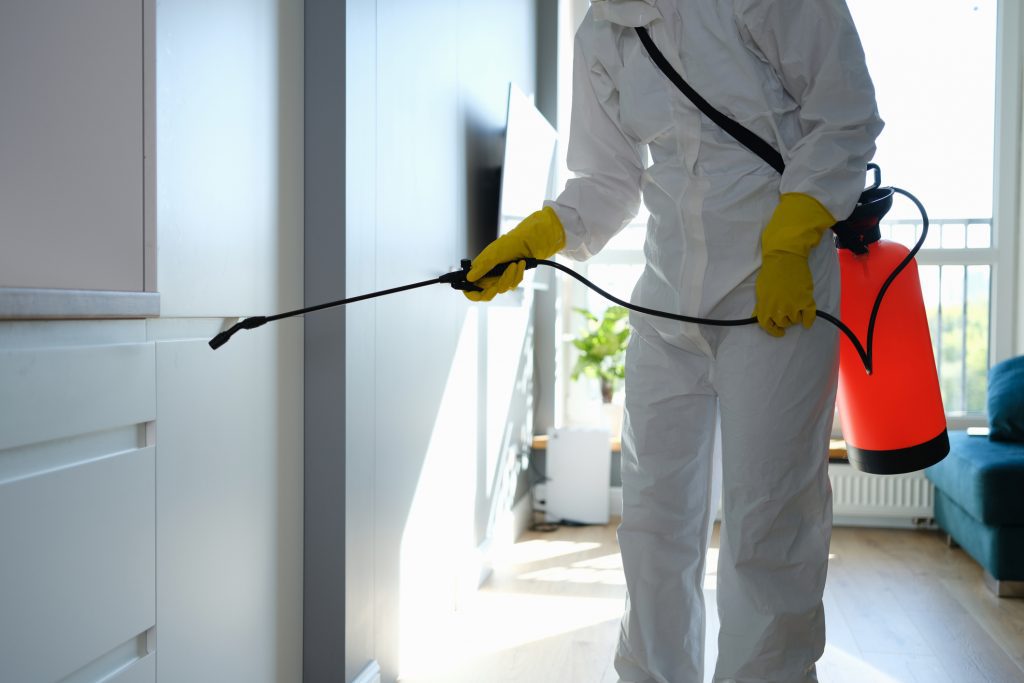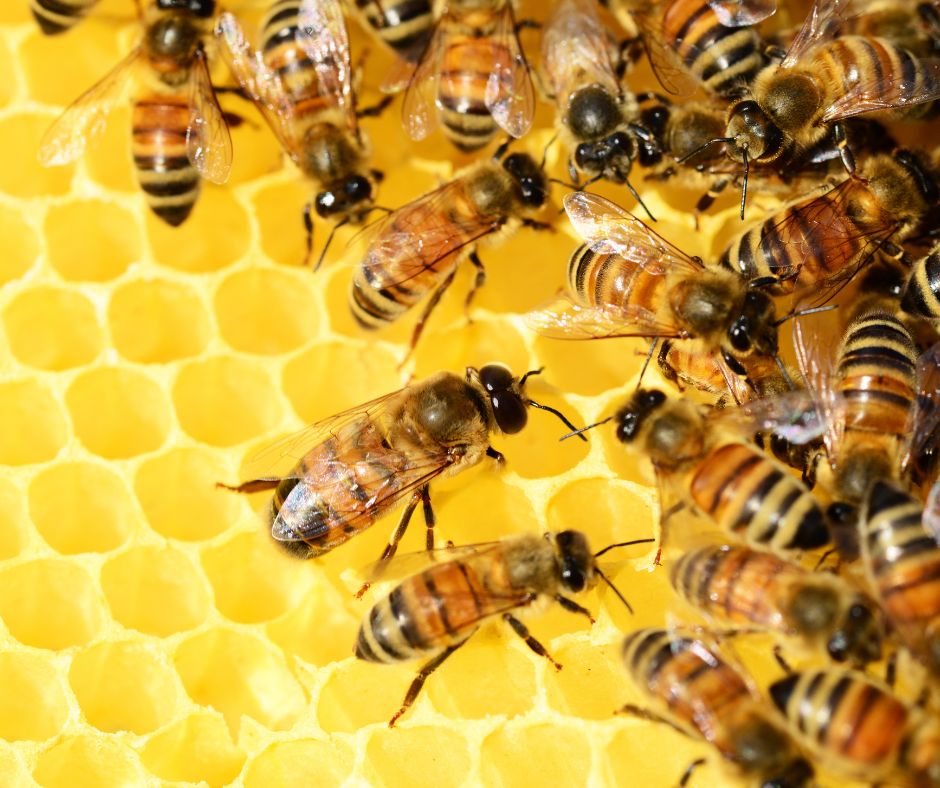Ant Exterminator Near Me: How to Get Rid of Ants Fast and Effectively
Ant Exterminator Near Me: How to Get Rid of Ants Fast and Effectively
Blog Article
Reveal the Significance of Pest Control in Preserving a Healthy Atmosphere and Treatment Strategies

The Duty of Bugs in Communities
Pests, usually watched only as nuisances, play a complex duty in ecological communities that is crucial for keeping environmental equilibrium. They contribute significantly to different ecological procedures, consisting of pollination, nutrient cycling, and bug control. Lots of insect species, such as butterflies and bees, are vital pollinators for a broad range of plants, which in turn supports biodiversity and food manufacturing.
Furthermore, parasites offer as target for numerous predators, producing an essential link in food internet. This connection guarantees the survival of different types and assists regulate populations within communities (Termite treatment Port Charlotte). Additionally, decomposer bugs, such as specific beetles and fungi, are crucial in breaking down organic matter, thus enhancing soil and facilitating nutrition recycling.
Conversely, while bugs can be beneficial, their overpopulation or invasion right into non-native settings may interrupt these ecological features. This complexity emphasizes the importance of recognizing pest dynamics, as reliable bug management methods need to think about both their ecological functions and potential influence on human activities. Stabilizing pest presence while reducing injury is crucial for maintaining the stability of ecosystems and guaranteeing agricultural efficiency.
Wellness Dangers Connected With Parasites
The presence of parasites in different atmospheres prolongs beyond their ecological duties, as they additionally position considerable wellness dangers to people and animals. Several parasites, including bloodsuckers, bugs, and rodents, are carriers of diseases that can have severe health implications. Rats are understood to send hantavirus and leptospirosis, both of which can lead to severe breathing and renal issues, respectively.
Pests such as ticks and insects are well known for spreading vector-borne diseases like jungle fever, dengue high temperature, and Lyme disease. These illnesses can result in high morbidity and mortality prices, especially in susceptible populations. In addition, pests like cockroaches and insects can exacerbate allergic reactions and asthma, contributing to respiratory problems in people, specifically those with pre-existing conditions.
In addition, the presence of insects can bring about mental stress and pain, impacting total well-being. Contamination of food and surface areas by insect droppings and continues to be can bring about foodborne diseases, highlighting the importance of preserving sanitary conditions. Comprehending the wellness risks associated with bugs is crucial in recognizing the necessity of efficient parasite administration approaches to safeguard animal and human health.

Advantages of Reliable Bug Control
Reliable pest control is necessary for keeping a risk-free and healthy setting, as it constantly mitigates the various dangers connected with parasite invasions. Among the main benefits of effective bug monitoring is the reduction of wellness hazards. Pests such as roaches, insects, and rodents are vectors for conditions that can affect both pets and humans. By regulating these populations, the chance of condition transmission is considerably reduced.
In addition, reliable pest control safeguards building and structures from damage. Numerous parasites, like termites and carpenter ants, can trigger considerable structural damage that may need costly repair work. By proactively handling these organizations, invasions look at here now and house owners can shield their financial investments.
Another substantial advantage is the improvement of overall high quality of life. A pest-free setting adds to psychological wellness and minimizes anxiety associated with problems. Additionally, effective pest control promotes a more secure setting for pet dogs and youngsters, guaranteeing that homes remain sanctuaries without damaging chemicals and disease-causing organisms.
Usual Insect Control Methods

In the world of bug monitoring, different techniques are employed to combat problems properly. These techniques can be broadly categorized right into three main strategies: social, mechanical, and chemical controls.
Social control includes modifying practices to decrease bug recreation, survival, and facility. This might include crop turning, correct hygiene, and environment adjustment, which jointly produce a setting less for pest proliferation.
Mechanical control employs physical approaches to eliminate pests (Termite treatment Port Charlotte). Methods such as traps, vacuum cleaners, and obstacles are typically used to directly eliminate insects from a location. This technique is especially effective for handling rodents and pests without making use of hazardous chemicals
Chemical control entails the application of chemicals to handle bugs. These substances can be classified into fungicides, insecticides, and herbicides, each targeting certain sorts of insects. It is important to use these chemicals sensibly, adhering to safety guidelines and laws to minimize potential harm to non-target varieties and the environment.
Each pest control strategy has its restrictions and benefits, and typically, an incorporated strategy combining several techniques generates the most effective cause maintaining a pest-free setting.
Sustainable Bug Monitoring Practices
Lasting insect administration methods incorporate a series of approaches designed to lessen environmental influence while effectively regulating parasite populaces. These methods prioritize making use of eco-friendly techniques over chemical pesticides, thus minimizing the threat of harm to non-target species, including helpful insects, wild animals, and humans.
Integrated Pest Management (IPM) is a cornerstone of sustainable practices, combining organic, cultural, mechanical, the best termite treatment and chemical strategies to handle insects. Biological control includes presenting natural killers or parasites to subdue insect populaces. Social methods, such as crop rotation and polyculture, interfere with pest life process and enhance ecological community resilience.
Mechanical techniques, such as catches or obstacles, can efficiently avoid bug accessibility without chemical intervention. Furthermore, keeping healthy and balanced communities with correct soil monitoring, plant health and wellness, and biodiversity can naturally reduce pest concerns.
Education and understanding are vital elements, encouraging individuals pest control devices and communities to identify pest threats early and carry out safety nets. Termite treatment Port Charlotte. By cultivating a holistic method that stabilizes parasite control with environmental integrity, lasting bug administration methods not just safeguard frameworks and crops however also contribute to a much healthier environment for future generations
Verdict

Comprehending the health threats associated with bugs is critical in acknowledging the need of effective bug administration approaches to guard animal and human health.
Efficient parasite control is vital for keeping a healthy and balanced and risk-free environment, as it continually mitigates the many threats associated with parasite problems.Integrated Parasite Monitoring (IPM) is a keystone of sustainable methods, incorporating organic, cultural, mechanical, and chemical tactics to handle insects. By understanding the role of insects, acknowledging involved health dangers, and employing diverse treatment strategies, a lasting method to pest management can be accomplished. Integrated Bug Management (IPM) stresses an alternative approach that alleviates injury to beneficial microorganisms while efficiently regulating bug populations.
Report this page